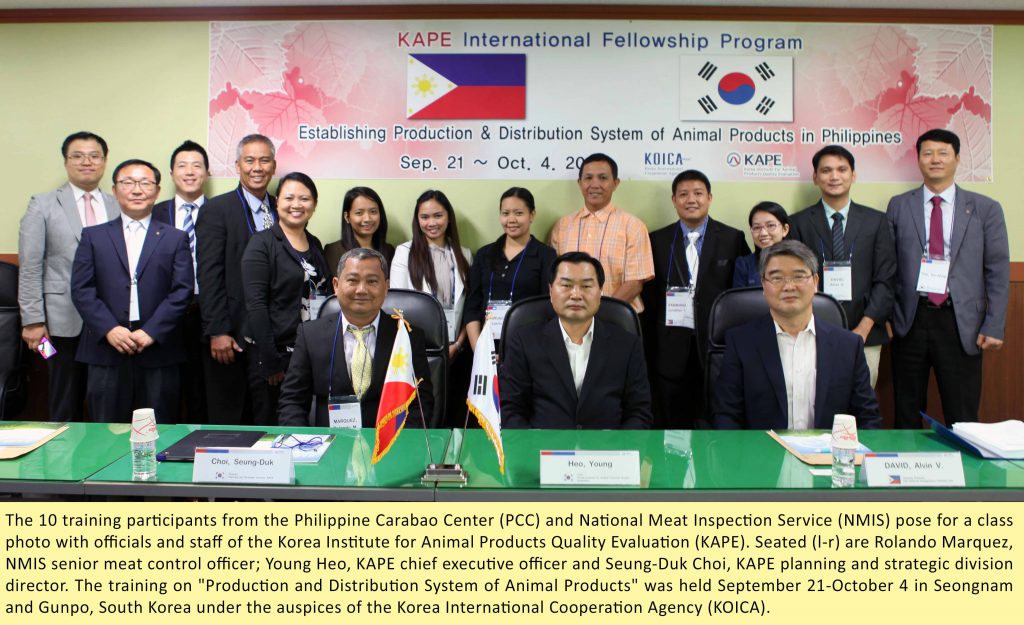Seven technical staff from the Philippine Carabao Center (PCC) and three from the National Meat Inspection Service (NMIS) recently completed a two-week training on “Production and Distribution System of Animal Products.”
Sponsored by the Korea International Cooperation Agency (KOICA), the training was conducted by the Korea Institute for Animal Products Quality Evaluation (KAPE) on September 21-October 4 in Seongnam and Gunpo, South Korea.
Farm-to-table traceability of livestock products from is mandated under existing laws of the Korean government. The traceability system utilizes Korea’s available vast technical expertise and technological capabilities. The legislation emanated from the pilot project named Beef Traceability Program that started in May 2004 in response to the need for traceability. At present, QR (Quick Response) codes found on product packaging allow customers to access information, such as breed, meat quality, grade, slaughterhouse and ID number, using smartphones.
Those who completed the training were PCC national headquarters staff Alvin V. David, Excel Rio S. Maylem, Gilliane G. Gantioque and Lilian P. Villamor; PCC regional centers staff Armando G. Racho, Guindolino Bajenting and Laarni M. Parungao; and NMIS meat control officers Rolando M. Marquez, Jonathan V. Sabiniano and Vernadette S. Sanidad.
Experts from the Ministry of Agriculture, KAPE directors as well as university professors and directors of private companies served as resource persons during the training. Major topics discussed included Korea’s livestock policies, beef quality grading, pork quality evaluation and egg quality evaluation.
Aside from the lecture-discussions, the trainees made field visits to the slaughterhouse of the National Agricultural Cooperative Federation, Dairy Cattle Improvement Center (DCIC), Korea Food Research Institute and Charm (Real) Fresh Company. During the field visits, it was observed that the traceability and grading system puts consumer safety and satisfaction as priority concerns, which, in turn, translate into economic benefits for livestock producers in terms of highly competitive prices for premium quality livestock produce.
As their main output arising from the training, the participants were tasked to prepare an action plan with SWOT (Strengths, Weaknesses, Opportunities and Strengths) analysis that will help the country establish its own traceability system. The PCC and NMIS will partner to spearhead a pilot project on livestock products’ traceability.

